9 Ways You’re Damaging Your Pots and Pans
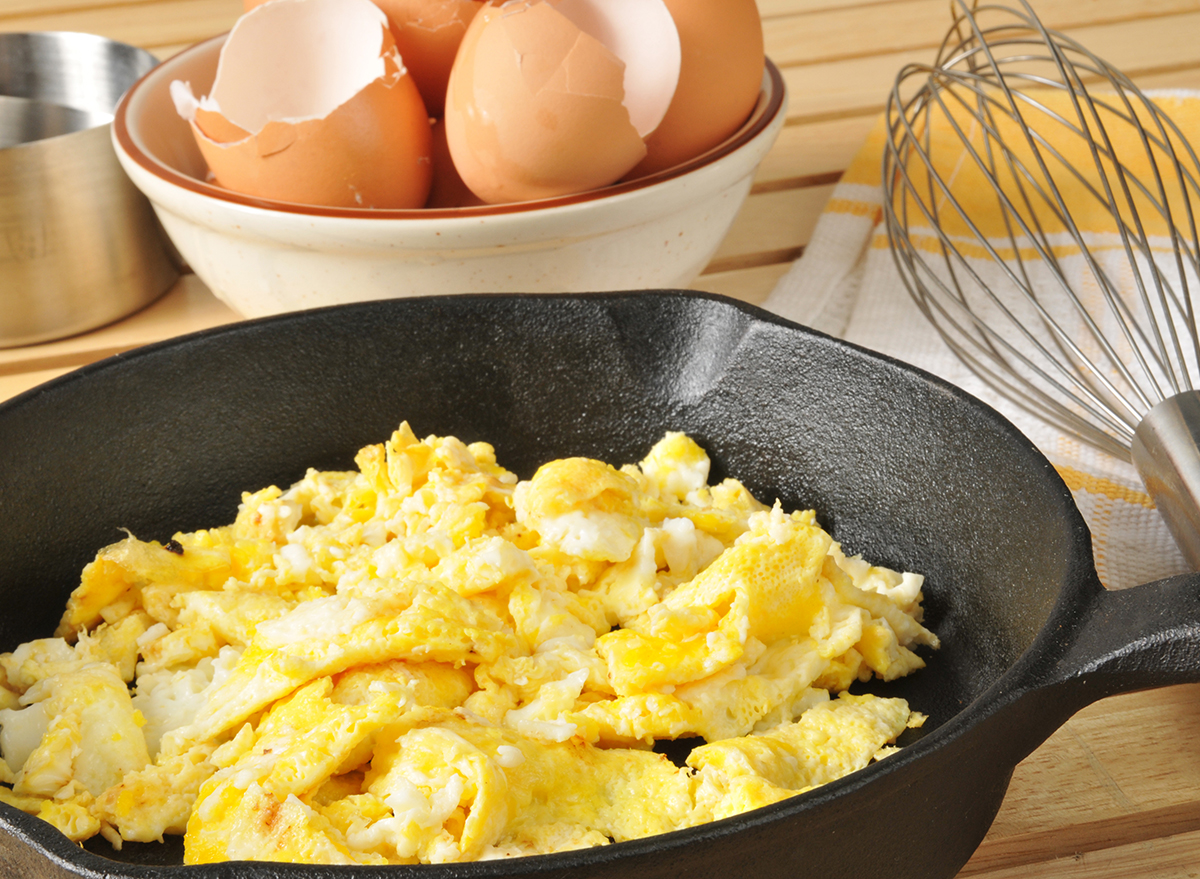
So, you’re cooking more than ever thanks to this period of quarantine. All of those kitchen gadgets, like your Instant Pot or slow cooker, are finally getting some love. But how can you make your kitchen tools last as long as possible, with all of this frequent use? After all, you don’t want to be one of the people starting a kitchen fire during coronavirus! Here are some ways you might be damaging your pots and pans without even realizing it.
Whether you’re cooking in a cast-iron skillet or a nonstick pan, there are some tricks to caring for your cookware that everyone should know. Here’s how to care for your cookware the right way.
You’re not cleaning your cast-iron skillet the right way.
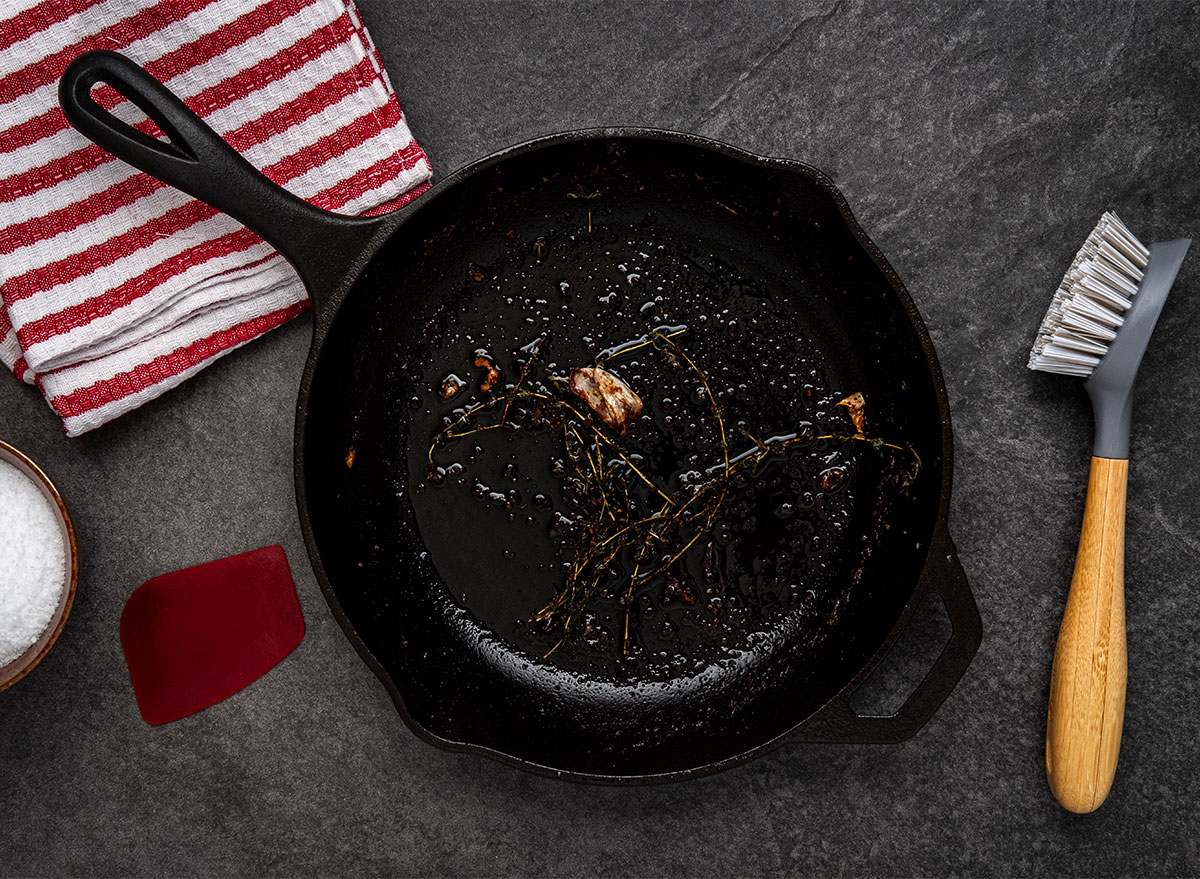
No, you shouldn’t be scrubbing it with soap! Instead, scrape off any baked-on food with kosher salt and water. Here’s How to Clean a Cast-Iron Skillet In 3 Easy Steps.
You’re using metal tools in a nonstick pan.
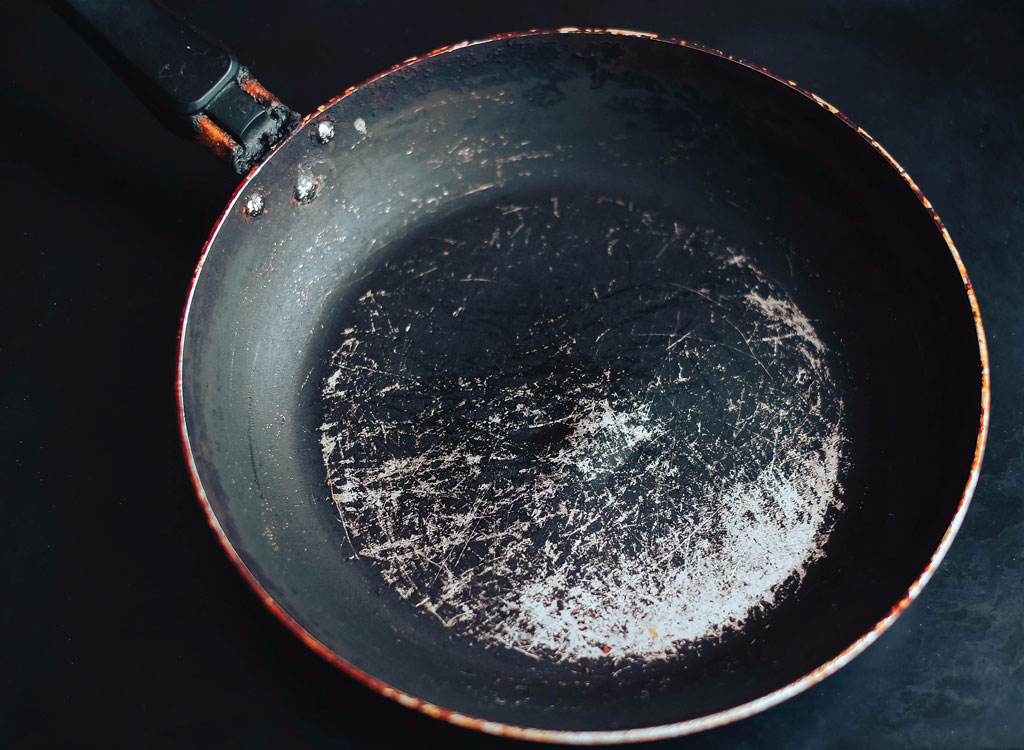
Even if all you’re doing is stirring scrambled eggs with a spoon, you don’t want to have metal utensils near your nonstick pans. They can scratch the interior, causing the pans to wear out faster than you want them to.
You’re putting cast-iron or nonstick pans in the dishwasher.
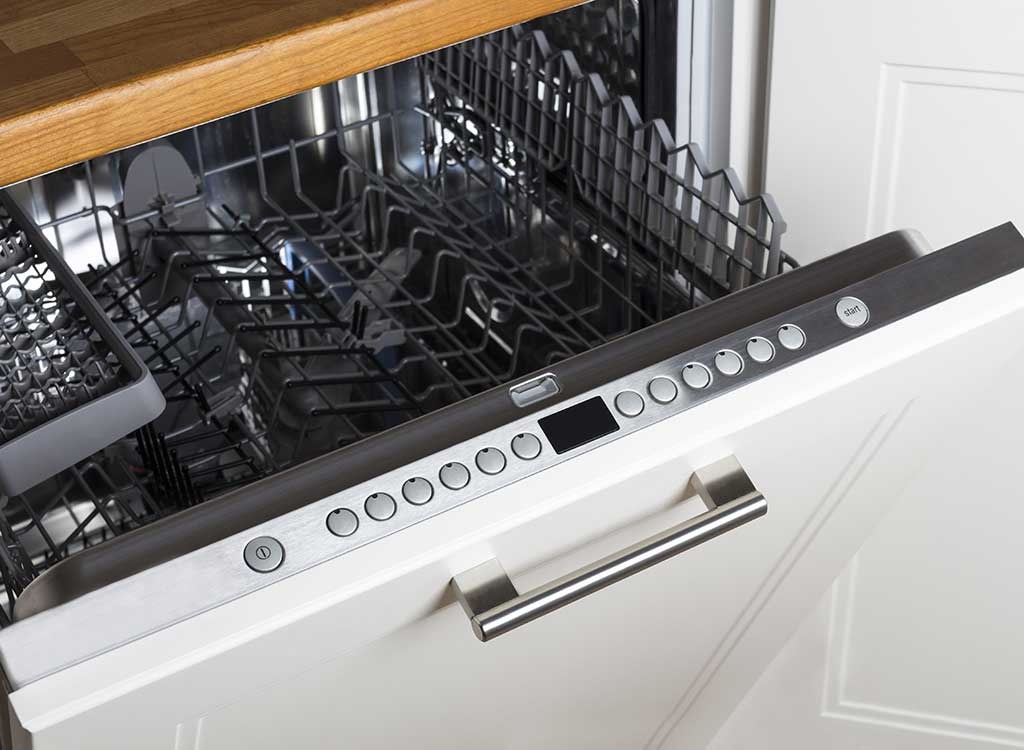
Dishwashers are powerful tools, but they can wreak havoc on certain cookware items. If you want to keep your cast-iron skillets and nonstick pans in tip-top shape, it’s best to clean them by hand.
You’re using cooking sprays with nonstick pans.
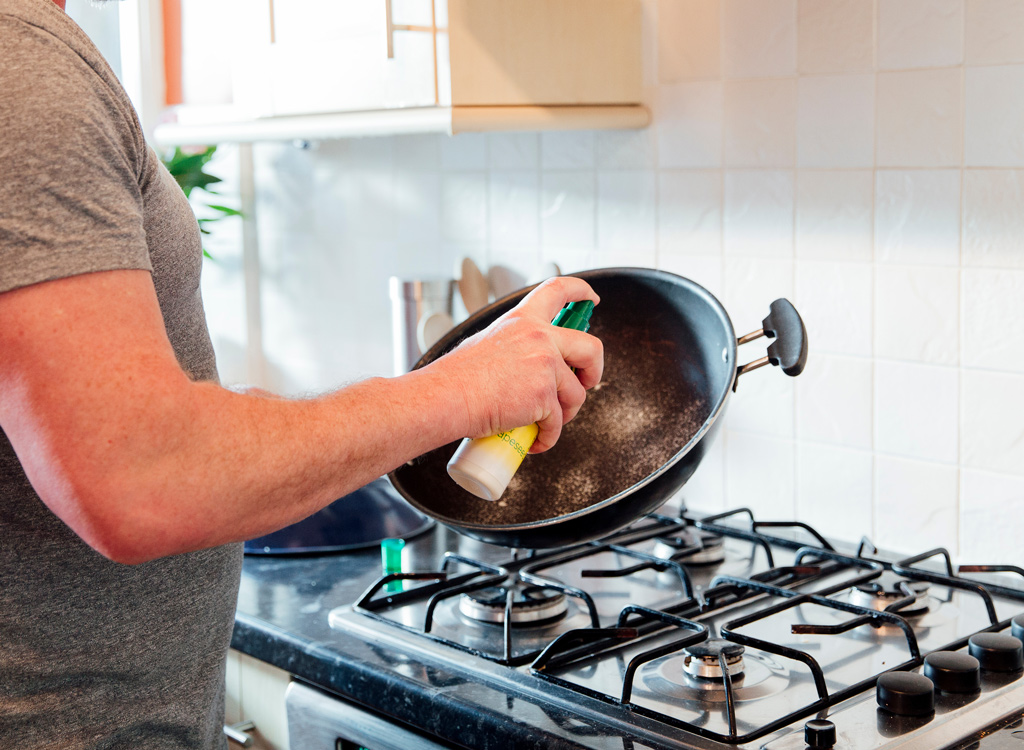
“They can actually damage the coating of nonstick pans because they create a build-up around the pan, which can require you to scrub heavily and damage the nonstick release system,” says Yumna Jawad of Feel Good Foodie. “This is why your favorite nonstick pan may eventually cause eggs to stick to it. Stick with natural fats like oil or butter instead.”
You’re leaving a cast-iron skillet on a drying rack.
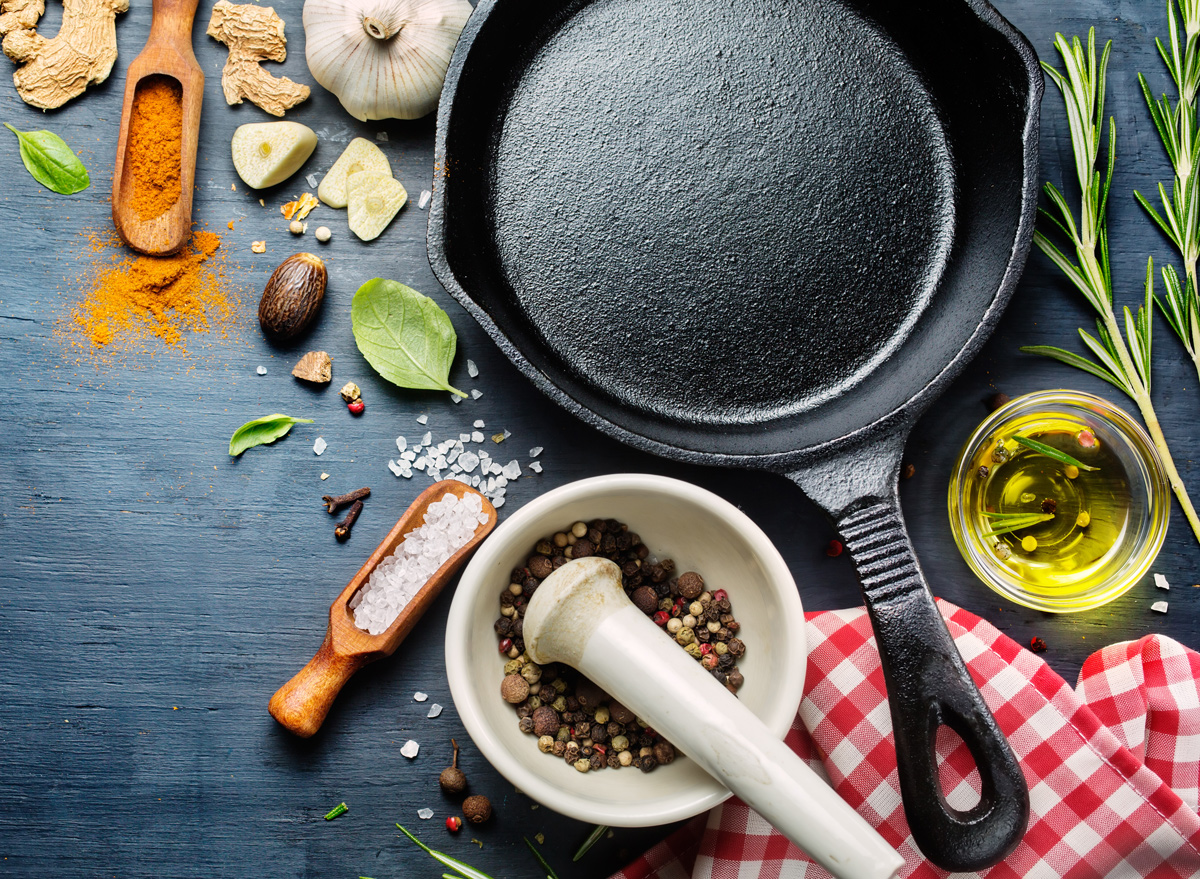
“Water leads to rust, and rust is the cast-iron’s worst enemy. Storing the skillet in a damp area or storing it without having the skillet thoroughly dry is a big mistake,” Ronnie Schwandt, executive chef at Maretalia and Leroy’s Kitchen and Lounge in Coronado, California, previously told Eat This, Not That. “Keep it dry, and use it often. A cast-iron is an everyday skillet, so don’t save it for special occasions.”
Similarly, you don’t want to leave a cast-iron pan soaking in the sink, even if you don’t put soap in it. It’s a surefire recipe for rust.
You’re not preheating stainless steel pans.
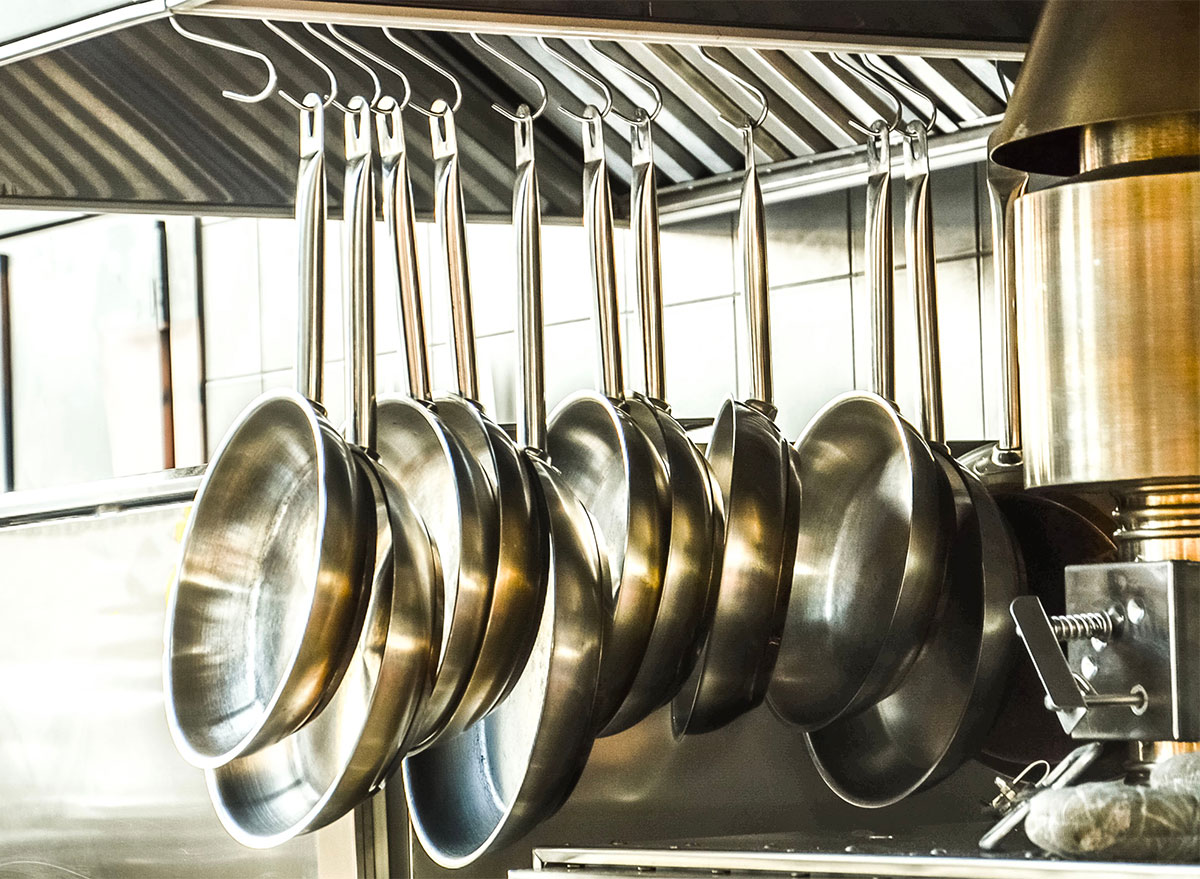
“This is such a helpful tip to avoid having the food stick to the surface. Many people are afraid of using stainless steel pans for this very reason. But as long as you’re not cooking eggs or pancakes, the food shouldn’t stick to stainless steel pans,” Jawad says. “Just remember to heat it properly, and don’t try to move the food until it’s cooked—it will self-release naturally.”
Cast-iron pans will also fare better if they’re preheated—you can even toss them in the oven while it preheats, to make the appliance serve double duty. Nonstick pans, though, shouldn’t be preheated without a fat source like butter in them.
You’re cooking seafood in your cast-iron skillet.
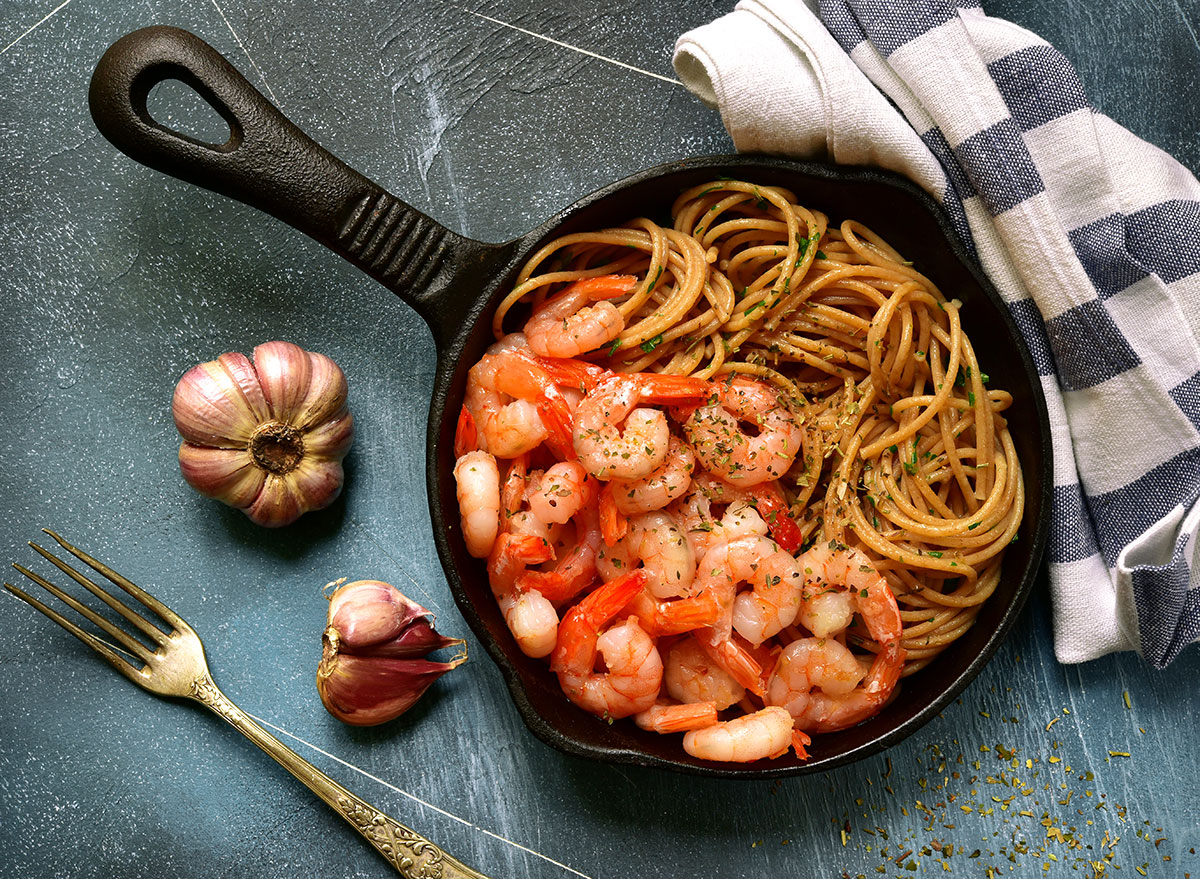
Miles Mitchell, chief academic officer and corporate executive chef at Auguste Escoffier School of Culinary Arts in Chicago, Illinois, previously recommended to Eat This, Not That that home chefs don’t use a cast-iron skillet for seafood unless you’re planning on making it a seafood-only skillet. Cast-iron skillets are meant to impart flavor, but you might not want to have that taste of seafood in, say, a mac and cheese dish.
You’re cooking acidic foods in nonstick pans.
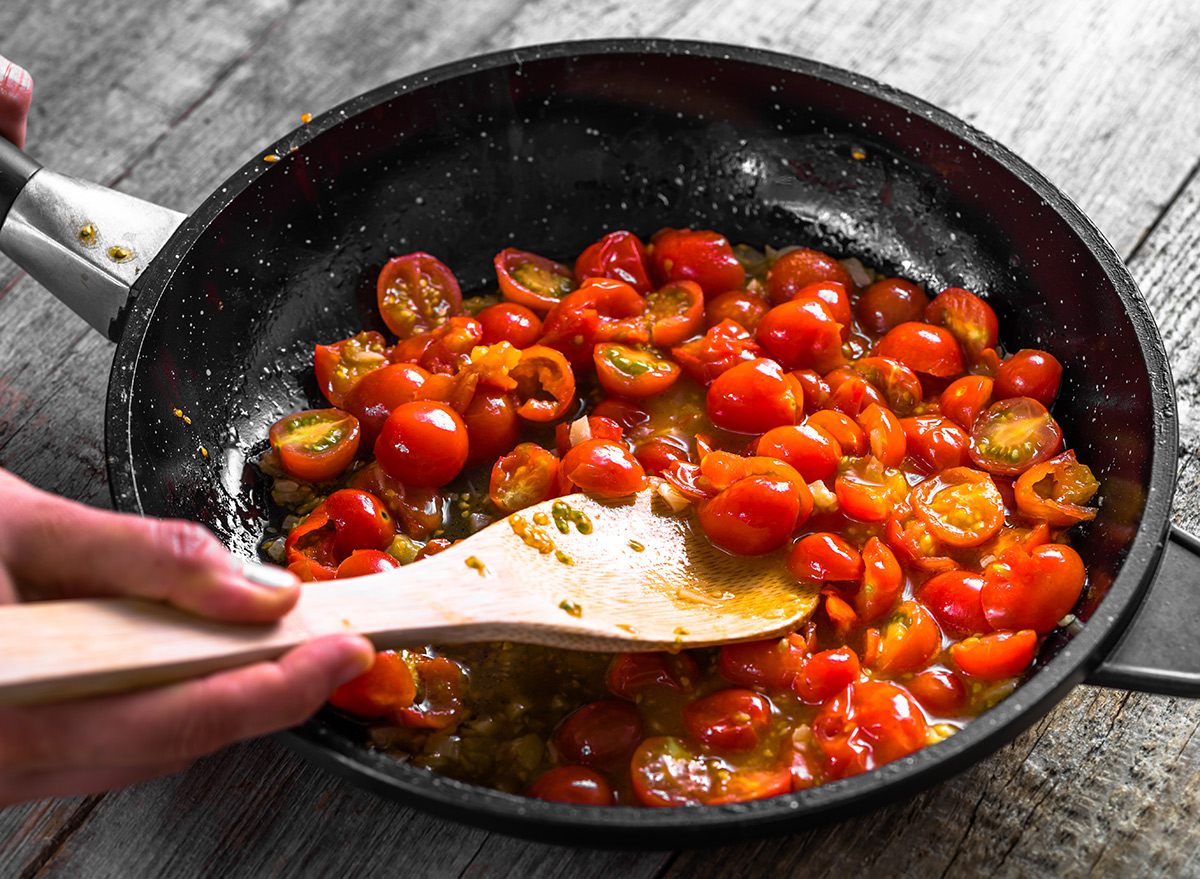
Do you know the difference between reactive and nonreactive cookware? If you don’t, your tomato-heavy pasta dishes could be destroying your pans. Acidic foods require non-reactive cookware, like stainless steel pans or enamelware.
As far as cast-iron pans go, quick cooking is OK for acidic foods, but you don’t want to cook something too acid-heavy in a cast-iron skillet for more than 30 minutes. As with nonstick, cast-iron can be damaged by acidic foods.
You’re over-scrubbing nonstick pans.
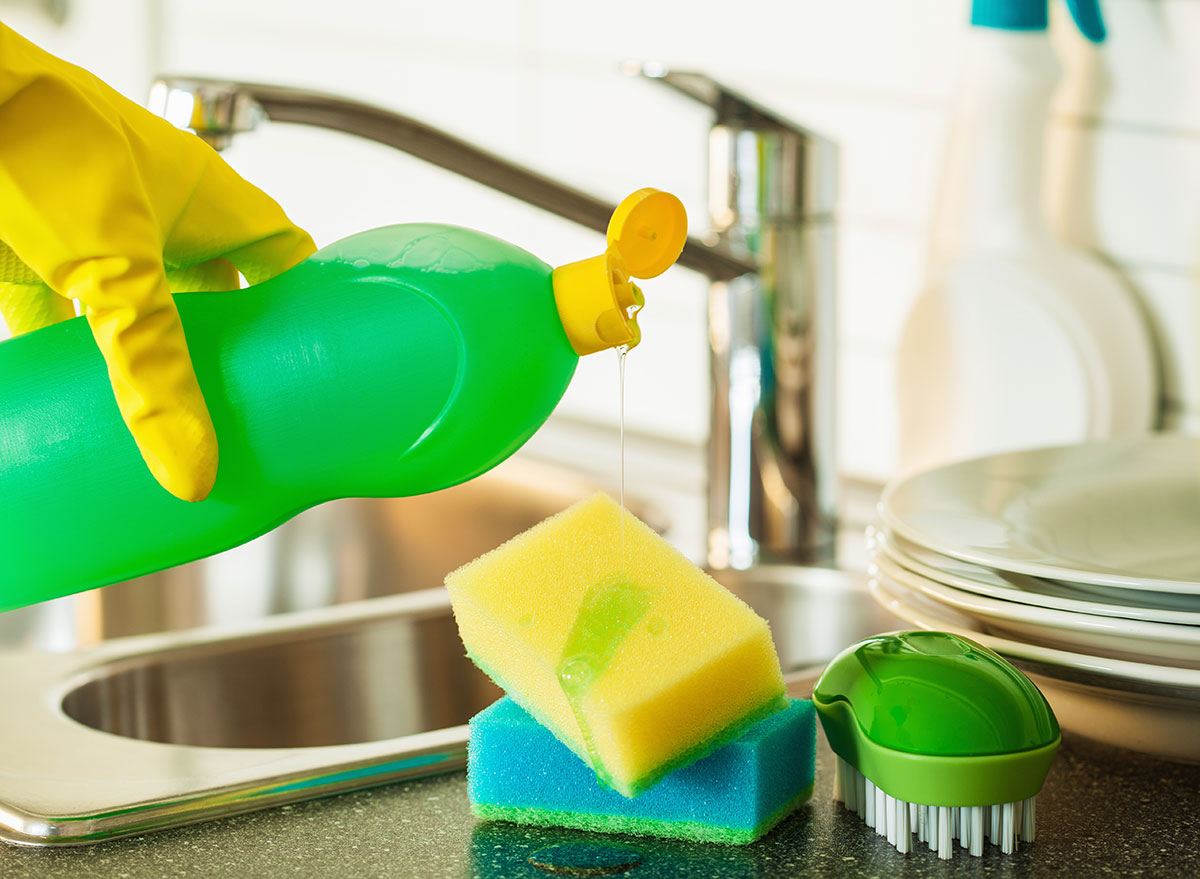
Yes, you want them to be clean, but you don’t want to chip off the nonstick coating. Steer clear of using “heavy-duty” sponges or metal scrubbers on nonstick pans, and opt for ones labeled “non-scratch” instead.
Now that you know how to care for your cookware the right way, you’ll make it last even longer. And for some ideas on what to cook in all of those pots and pans, check out these 50 Quick & Easy Dinner Recipes.